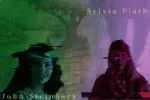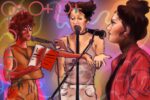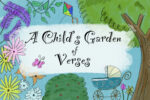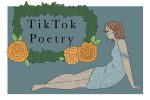When I began high school, I found writing to be tedious and boring, and I rarely engaged in it recreationally. My writing habits shifted my sophomore year, when I was required to write a poem for my English class. I didn’t think my poem was anything special, but my teacher complimented my work, so I jokingly submitted it to an online poetry contest and got published. Receiving that check in the mail from the publishing company gave me a cash incentive to continue writing, but my motivations for writing slowly drifted away from the desire to get rich, and it became increasingly unclear to me why I continued to write.
It took some time to discover the true motivations behind my poetry because they only seemed clear to me in times of self-doubt. When I felt sad, I could somehow see the underlying reasons for my thoughts, beliefs and dispositions more clearly, which allowed me to create more in-depth poetry. Instead of using poetry for external goals, like fame or fortune, I realized I needed it to attain internal goals, by examining the deepest corners of my psyche and connecting my thoughts to my emotions in a unique and beneficial way.
The Sylvia Plath effect, named after the American poet, is a term coined by James C. Kaufman. The effect refers to the phenomenon that poets are more likely to be susceptible to mental illness than other creative writers, and it is often used to identify the link between creativity and mental illness. It is still unclear why poets seem to be at a higher risk for mental illness; some argue it is purely coincidental, while others take a more deterministic outlook.
These folks argue that people who are genetically predisposed to depression often use creativity as a coping mechanism to deal with their mental anguish. Those severely afflicted with depression habitually move toward creative endeavors because those behaviors offer them the relief they cannot find elsewhere. Perhaps two poets that embody the idea are Rainer Marie Rilke and Charles Bukowski, two of my favorites. Although they have two distinct styles, the motivations behind both of these poets’ writings stem from the anxieties and mental struggles they suffered with throughout their lives.
Rainer Marie Rilke
Throughout his lifetime, the late 19th and 20th century German poet Rainer Marie Rilke slowly evolved his writing style, transforming his more abstract and emotional poetry into a descriptive philosophical breakdown of the deception and truth he saw in our world. His philosophical poetry closely examined the mental traps people fall victim to and reflects the overwhelming despair that festered inside of him in the wake of a war-torn Europe. His poetry was deeply influenced by the German philosopher Friedrich Nietzsche, who lived during Rilke’s lifetime, and Nietzschean themes such as distrust of the herd and morality were repeatedly explored by Rilke.
In Rilke’s poem “The Panther,” he observes a panther behind the bars at a zoo, comparing the panther’s will to live with that of mankind’s. The poem begins with, “His weary glance, from passing by the bars, Has grown into a dazed and vacant stare; It seems to him there are a thousand bars, And out beyond those bars the empty air.” Like the panther, mankind lives behind bars. The panther is held captive in a cell made by human ingenuity, while mankind’s personal cells are blandly prescribed by social beliefs that make captive the wildness and individuality of the human spirit.
Humanity’s confinement is built from its defined limitations. The social norms and beliefs compose the bars of an individual’s prison, restricting that person’s actions, and inhibiting their freedom of original self-expression. The poem goes on by stating, “But there are times the pupils of his eyes, Dilate, the strong limbs stand alert, apart, Tense with the flood of visions that arise, only to sink and die within his heart.”
When someone feels fully alive and free, they can awaken themselves to their inner hopes and dreams. Sadly, upon realizing their conflicting interests and all the bars that stand in the way of their dreams, most become scared and submissive. Like the panther whose visions “sink and die within his heart,” people submerge their dreams deep down inside of themselves. They hide their wild aspirations in fear of them once again resurfacing, forcing them to face the insurmountable odds of breaking out of their self-made, herd-based enclosure.
Charles Bukowski
“The problem with the world is that the intelligent people are full of doubts, while the stupid ones are full of confidence” — Charles Bukowski
The 20th century poet and novelist Charles Bukowski was born in Germany and moved to America when he was 2 years old. His family ended up in Los Angeles, where he lived most of his life. Bukowski’s adolescent years were stained with anxiety, from the physical and mental abuse his father put him through and constant teasing from neighborhood children. In the 2003 film “This,” Bukowski explained that his dad used to hit him with a “razor strop three times a week from the ages of 6 to 11 years.”
His gloomy childhood made him timid and withdrawn, and he quickly turned to alcohol as a teenager to cope with his depression. The contempt he held for his father damaged his mental health and fueled his future alcoholism, but Bukowski admits that the pent-up rage inside of him was part of the reason he excelled at writing. He believed the unwarranted abuse he received from his father gave him a unique perspective that allowed him to better understand true suffering.
Charles Bukowski exemplifies the Sylvia Plath effect. He used poetry to combat his mental struggles, while using the unique perspective provided by his mental struggles to excel in poetry. Despite Bukowski’s popularity as a poet, he is best known for his novel “Post Office” and the screenplay for the film “Barfly.”
Bukowski’s poem “The Suicide Kid” flawlessly illustrates his mental anguish and suicidal mindset. In the poem, Bukowski’s depression has become so debilitating that he goes binge drinking at several bars, “hoping to get killed.” The short lines of the poem create a concise structure that accurately reflects the booze-fueled mindset of a depressed alcoholic searching for a way out from his painful existence.
“The Suicide Kid” captures the essence of Bukowski’s melancholy state, but also illustrates his ironic sense of humor. In the final lines he makes light of the fact that he is 72 years old and still hasn’t figured out how to kill himself. His dark sense of humor found it amusing that he continues to live, despite repeated attempts to take his own life. He never killed himself, but instead, the deep, dark drive inside of him continued to compel him to create — something more universal, especially among poets, than Bukowski would have probably admitted.
















